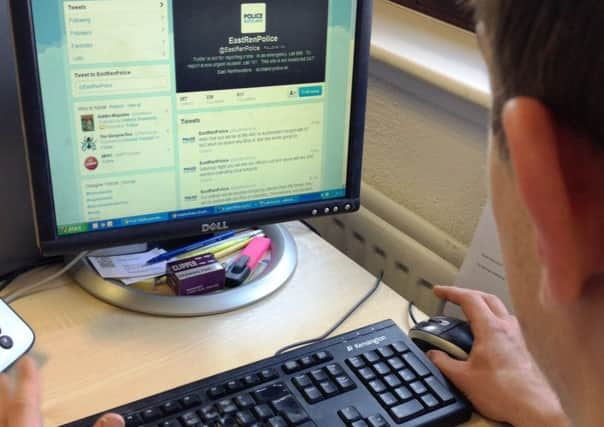Southside cops flag up identity fraud danger


The term — used when criminals use your identity for monetary gain — can cover a wide range of incidents, from opening bank and credit accounts in your name or redirecting post to another address to securing a passport using your personal details.
According to sergeant William Eadie, of Gorbals police office, identity theft is on the increase, “with more local victims being identified on a weekly basis”.
Advertisement
Hide AdAdvertisement
Hide AdHe added: “Victims are non-specific and can come from all walks of life.”
Information regularly thrown away in the rubbish bin — from names and addresses and date of birth to pet names or your mother’s maiden name — can provide enough information for a fraudster to assume your identity. Information provided on social network sites can also lead to identity fraud.
Officers have provided tips which should safeguard you from identity theft:
1. Always shred or destroy documents that contain personal information before throwing hem away. Financial statements and even junk-mail solicitations for credit cards are obvious, however even an old catalogue showing your name, address and account number could help a thief steal your identity.
Advertisement
Hide AdAdvertisement
Hide Ad2. Destroy digital data. When you dispose of a computer system or a hard drive, you need to take extra steps to ensure the data is completely and irrevocably estroyed. Simply deleting the data or reformatting the hard drive is not sufficient as files and data can be recovered and undeleted from a formatted drive. Use a product like ShredXP to make sure that data on hard drives is completely destroyed.
3. Read all bank and card statements regularly to check for suspicious transactions.
4. Have your post forwarded for at least six months when you move house. Register to vote at your current address.
5. Report the loss of or thefts of cards or important documents — such as a passport or driving licence — to the relevant organisations as soon as possible.
Advertisement
Hide AdAdvertisement
Hide Ad6. Never write a PIN on a credit/debit card or on a slip of paper kept in your wallet. Never write down or share account details or passwords. Do not use 1234 or 1379 as a pin number. Use your free hand to shield the keypad when entering a PIN number at an ATM or a credit card number on a computer. If paying by credit/debit card in a restaurant, ask for the mobile card reader to be brought to you and keep possession of your card at all times.
7. Be alert on the phone: Never respond to cold-call phone calls asking for account details, PINs, passwords or personal information.
8. Be alert online: phishing is a growing problem, where fraudsters masquerade as a trustworthy company and email you asking for sensitive information such as usernames, passwords and credit card details. Install firewalls and virus-detection software on your home computer. Don’t give too much away on networking websites.
If you have been the victim of identity theft, police advise you to contact creditors as soon as possible, so that they can monitor your accounts.
Advertisement
Hide AdAdvertisement
Hide AdVictims can also contact the UK fraud prevention service, CIFAS, and subscribe to its protective registration service — a notice will then be placed on your credit file, indicating that your details may be used to perpretrate fraud.
To find out more, visit www.cifas.org.uk.